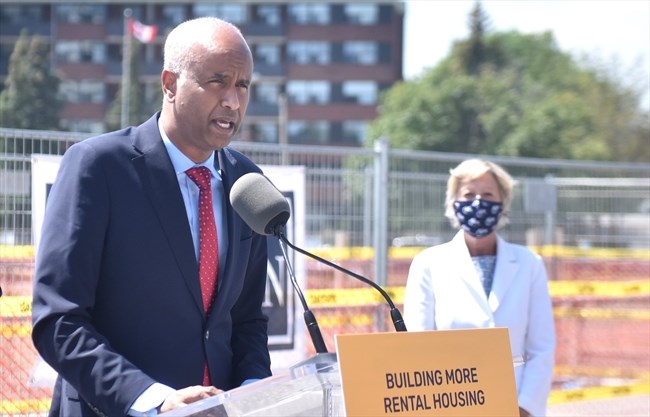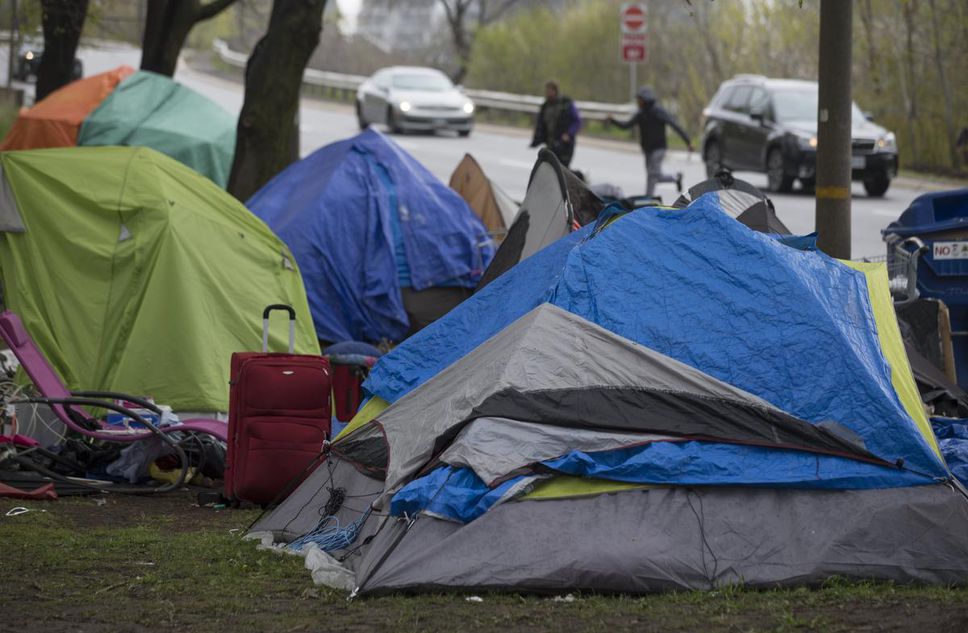
Editorial: Special Issue –Homelessness in Canada
Editorial: Special Issue –Homelessness in Canada
La version française de ce éditorial se trouve ici.
Canada is viewed as one of the world’s most prosperous countries. It is a member of the G7 and consistently ranked near the top of the Human Development Index. But Canada’s experience with homelessness demonstrates that a rising tide does not necessarily lift all boats.
One reason for homelessness in Canada is that, relative to other wealthy countries, the so-called Great White North has a tight-fisted social welfare system. In fact, as a percentage of Gross Domestic Product, Canada’s level of public social spending is the lowest among all G7 countries.1
Likewise, the degree to which Canadian governments invest in housing for low-income persons is modest in relation to other wealthy countries. Just 3.5% of Canada’s total housing stock is non-market social housing, less than half the average for member countries of the Organization for Economic Cooperation and Development.2
It does not help that for every new affordable rental unit added to Canada’s housing stock, 15 are lost through ‘erosion of stock.’3There are three main reasons for this: 1) existing private sector rental housing at the low end of the market is not being preserved by public or non-profit entities (in many cases, such units are scooped up by real estate investment trusts with the objective of raising rents); 2) very few non-market or deeply-subsidized market rental units are being created; and 3) the private sector is not building as many new rental units as it once did.
With respect to homelessness, the funding picture is dire. One would hope that Canada’s federal government would lead on this matter and encourage provincial, territorial and municipal governments to follow. However, for every $13 invested by other sources (mostly provincial and municipal governments), only $1 is invested on homelessness by Canada’s federal government.4
Canada’s treatment of Indigenous peoples (i.e., First Nations, Inuit, and Métis peoples) has been horrific, and has caused Indigenous peoples to suffer from homelessness at disproportionately high rates. Across Canada, Indigenous men are 10 times more likely to use an emergency shelter than non-Indigenous men, while Indigenous women are 15 times more likely to use an emergency shelter than non-Indigenous women.5 Many factors account for this, including: assimilation policies; the adoption out of many Indigenous children aimed at the destruction of Indigenous culture and language; intergenerational trauma produced by Canada’s residential school system; ongoing racism; and the underfunding of Indigenous social welfare both in First Nation communities and in urban settings.
Making matters worse, during the COVID-19 pandemic, drug-related deaths have increased considerably in Canada, especially among persons experiencing homelessness.6 Despite these challenges, not everything has been bleak regarding homelessness in Canada.
In 2014, results of the At Home/Chez Soi study were released. The study followed more than 2,000 participants in five Canadian cities. The most ambitious randomized controlled trial in Canadian history, this was funded entirely by the Government of Canada. With participants interviewed every three months over a two-year period, the study confirmed what many people already knew: providing persons experiencing homelessness with affordable housing and professional staff support (i.e., Housing First) can be effective at ending a person’s experience of homelessness. The study also found that Housing First is associated with important cost offsets, especially to the health and justice sectors. Advocates, researchers and practitioners now had solid evidence on the effectiveness of Housing First.
In 2015, Justin Trudeau became Canadian Prime Minister and his government began to signal a new era for federal involvement in both housing and homelessness. This included a National Housing Strategy, unveiled in November 2017, and more recently funding enhancements related to the COVID-19 pandemic.
A ‘bright light’ under Trudeau has been the Rapid Housing Initiative (RHI). Launched in October 2020, it provides important federal funding for non-profit housing including for the development of modular housing (i.e., units built quickly in a factory), the acquisition of land, and the conversion of existing buildings into low-cost housing. While many RHI-funded projects are waiting for operating funding from their respective provincial governments, the RHI is already viewed as being Canada’s most promising federal housing initiative to target chronic (i.e., long term) homelessness.
The COVID-19 pandemic has created serious challenges due to outbreaks at emergency facilities and an escalation in deaths among those experiencing homelessness. But there have been positive developments as well. For example, public officials have increased physical distancing by reconfiguring existing shelter spaces, acquiring new temporary spaces, and paying for hotel rooms.
The Trudeau government has made substantial new homelessness investments during the pandemic. In addition to RHI, it announced important, time-limited funding enhancements to Reaching Home, Canada’s national funding vehicle for homelessness.
Important partnerships have also emerged between homelessness officials and health officials during the pandemic. For example, Toronto’s emergency facilities are seeing more primary health care services (i.e., family physicians and nurses) provided on site. Also, during the pandemic, some Toronto shelters have seen pharmacists start to keep regular hours on site. Likewise, some of Calgary’s shelters have seen a substantial increase in on-site licensed practical nurses and paramedics.
Important harm reduction innovations have also occurred in Canada during the pandemic. For example, in Ottawa, supervised consumption services and a safe supply of cannabis are both offered at an isolation site for persons experiencing homelessness. Public officials in Yellowknife have distributed alcohol at the city’s isolation centre for persons experiencing homelessness.
Challenges remain in the sector, including: a rise in visible outdoor sleeping during the pandemic (as well as intense debate over how to address this in the short term); the worsening of the overdose crisis; a lack of cooperation from correctional facilities (e.g., which frequently discharge inmates directly into homelessness); and new homelessness caused by economic factors.
In short, inadequate levels of public social investment have helped manufacture homelessness in one of the world’s most affluent countries. But a recent renewed interest in affordable housing and homelessness by the Government of Canada, as well as local pandemic-related innovations, may help Canada pivot onto a better path. Against this backdrop, this Special Edition of the International Journal on Homelessness focuses exclusively on Canada.
Nick Falvo, PhD
Regional-Editor-in-Chief, North America
This guest editorial originally appeared here. It has been re-posted with permission.
1 OECD. Social spending. Data retrieved from https://data.oecd.org/
2 OECD. Public policies towards affordable housing. Data retrieved from https://www.oecd.org/
3 Pomeroy, S. (2020, May). Why Canada needs a non-market rental acquisition strategy. Retrieved from https://www.focus-consult.com/
4 Employment and Social Development Canada. (2018). Final report on the Evaluation of the Homelessness Partnering Strategy, May 11, 2018. Retrieved from https://www.canada.ca/
5 Falvo, N. (2019, October 3). The use of homeless shelters by Indigenous peoples in Canada [blog post]. Retrieved from https://nickfalvo.ca/
6 Milaney, K., Passi, J., Zaretsky, L., Liu, T., O’Gorman, C. M., Hill, L., & Dutton, D. (2021). Drug use, homelessness and health: responding to the opioid overdose crisis with housing and harm reduction services. Harm Reduction Journal, 18(1), 1-10.


